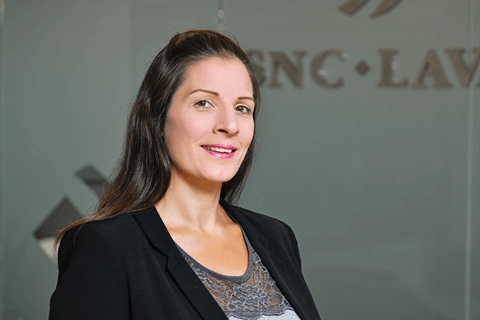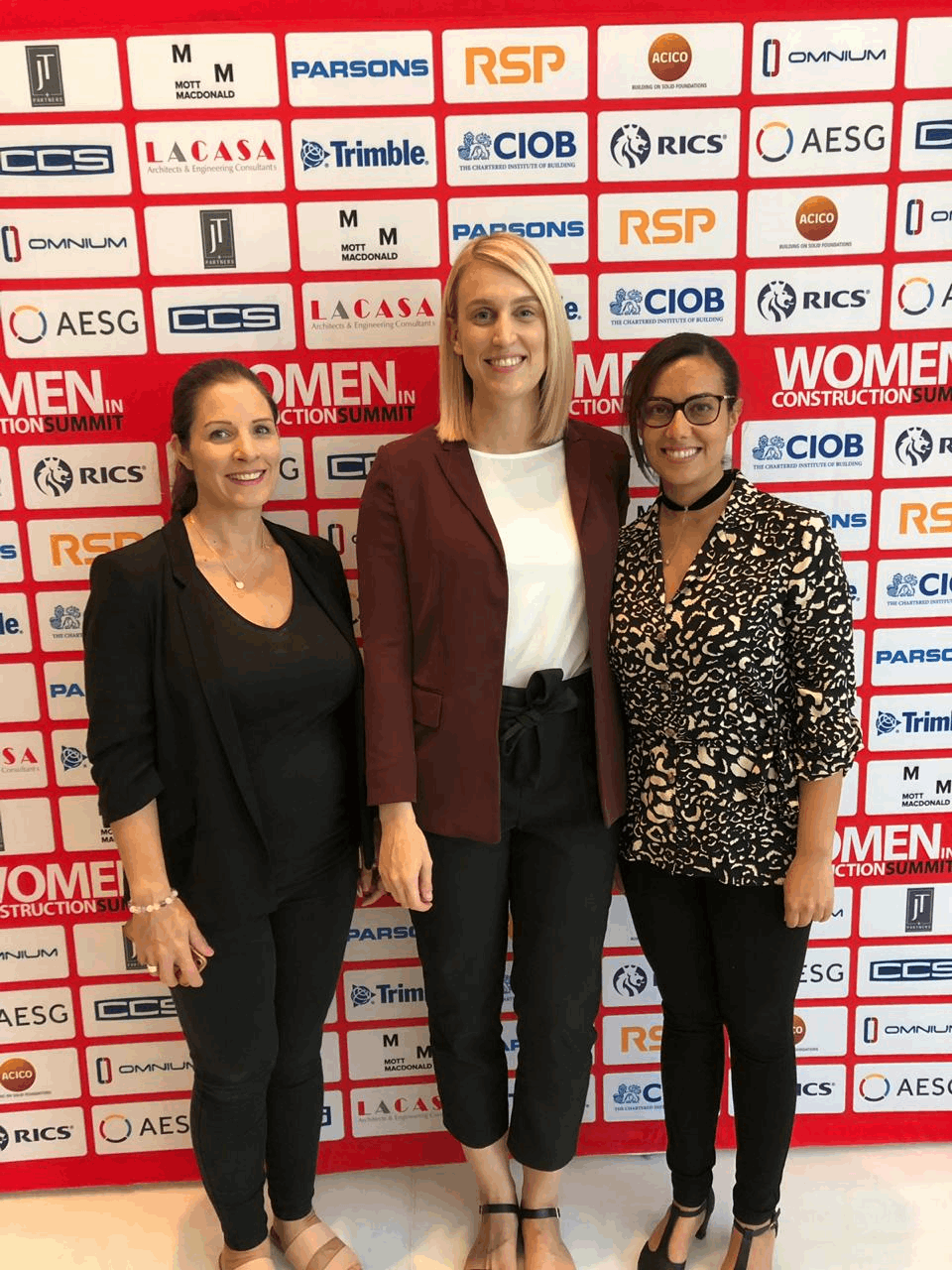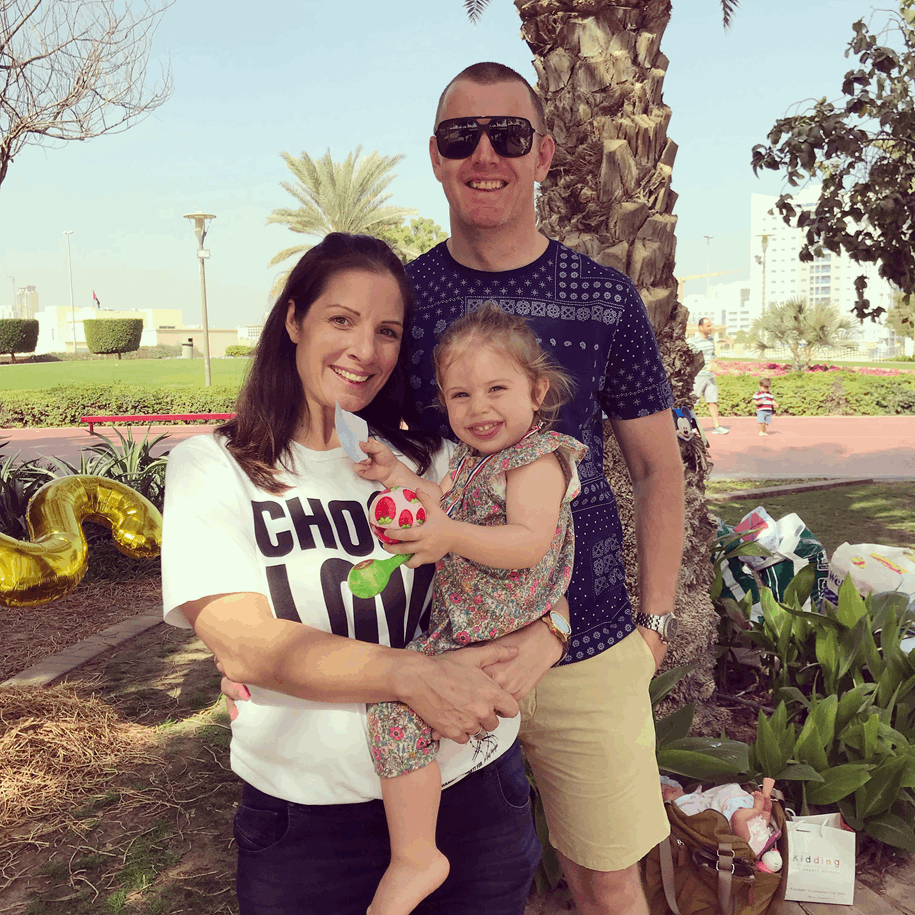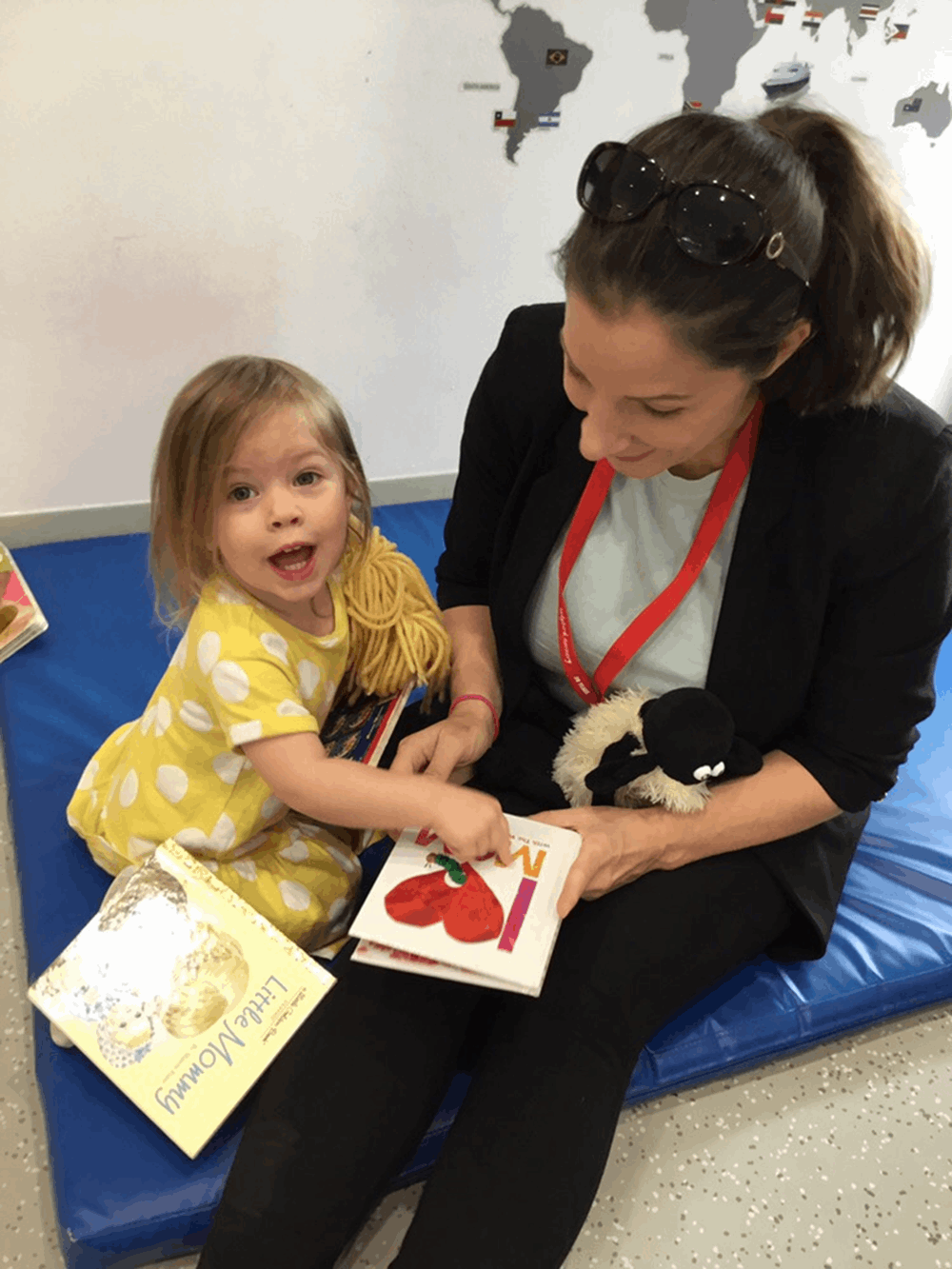

Insights INWED 2019: A conversation with Clare Evans
18 June 2019
Clare Evans has worked at AtkinsRéalis for 13 years and is currently a project manager and business change leader. She’s also Diversity & Inclusion (D&I) network leader for the Middle East & Africa region.
Clare's main role includes leading internal transformation programmes, design transformation, digital transformation, and wider business change, such as new systems for businesses. As far as D&I goes, Clare is responsible for developing action plans across the Middle East & Africa and managing their implementation.
In the lead up to International Women in Engineering Day (INWED) on 23 June, #insideAtkins is speaking to colleagues from across our business about their perspectives on gender balance in our industry and how they’re “Transforming the Future” for others. Here, Clare shares her experience and thoughts about why taking action towards improving D&I is so important.
Was there a definitive moment in your life that steered you towards a career in the industry?
I landed in Dubai in my 20s with a masters in Information Systems. It was a boom-town back then, and there were plenty of jobs going for entry level career positions. I went for an interview at Atkins where I saw immediate growth opportunities and I got the job.
My role quickly changed from a technology assistant to helping develop the regional IT department and support the IT teams in each country. From there I enjoyed so many opportunities with the organization – I’ve been fortunate enough to work in multiple roles, developing new skills and gaining invaluable experience. I’ve worked in IT, project management, business change, programme management in the Middle East as well as management consultancy for UK government clients.
Clare, pictured on the left of this photo, recently presented at a Women in Construction Summit.
What’s the most rewarding thing about what you do?
Watching other people grow, develop, and get the most out of their own careers. D&I is so important to me, because it gives people more in terms of personal development opportunities. I’ve taken that into my change management role. I try to encourage people to be open to change, and take on diverse ideas, or learn something unfamiliar. I love that.
I’m also encouraged by the meaningful changes AtkinsRéalis has implemented here in the Middle East. Our women’s business network evolved into the D&I network. We pushed through a ground-breaking maternity policy across the region. We’ve implemented a flexible leave policy, have started to give employees more of a platform to talk openly, and are about to roll out mandatory unconscious bias training as well.
How has your experience been as a woman in the industry? Is it what you expected, for better or for worse?
I would say that earlier in my career I felt less impacted and aware of the biases around me. I progressed quite quickly in the first few years, and I believed that as long as I proved myself, being a woman didn’t matter. And that can be true to an extent – there’s not much difference between a good female or good male in the early years of someone’s career.
But then as I progressed, it was no longer what I’d expected. I realized that there are marked stereotypes and a strong masculine bias when it comes to what people perceive as a good leader. And people can make thoughtless comments. I’ve been told I shouldn’t be too emotional, or too soft. This is why I think awareness of, and appreciation for, D&I is so important; it allows anyone to be themselves, and still work towards a senior position.
What advice would you give to younger women in the organisation?
Be as mobile and open to new opportunities as you can be. Go where the exciting work is. Be open about what you need and be confident enough to talk about it. For example, if you have children or other caring responsibilities, talk to your line manager about flexible working and how you can make it work for you. Find things that you’re passionate about and do them. Stay rewarded.
Is there a region within AtkinsRéalis that you feel is getting it right for women?
In Scandinavian society it’s considered normal for parental leave to be completely shared. Parents can combine it to take a year or two out of work. Our US and UK offices are doing flexible working very well – it means that people are just not expected to be in the office anymore and therefore have more options for how they can achieve positive work-life balance.
Why do you think awareness and action around diversity and inclusion is important to the engineering industry?
It improves the bottom line; plenty of studies show higher performance among individuals and companies when there is a clear focus on D&I. So we need to start challenging our unconscious biases. Just because we think something is normal, doesn’t mean it’s right. This is especially true when it comes to our leadership perceptions. D&I is also better for our work places. When people feel included and part of something, respected and valued, they can experience far more intense feelings of happiness and job satisfaction.
In what ways do you champion diversity and inclusion in your role?
It’s something I’m passionate about, so even if it’s not on the agenda, I hammer the message home everywhere. I’m trained as an ‘#IamRemarkable Trainer’, which is a Google initiative empowering groups, like women, to challenge perceptions around self-promotion. I’m encouraging other AtkinsRéalis D&I leads to become facilitators and am rolling out unconscious bias training across the whole region.
Do you have any role models who inspire you, or mentors who have helped you achieve the position you’re in today?
My dad is a definite role model. He was involved in leading business change and transformation in a large corporation, and has always been a person I could talk to about my career and any challenges that I’m having. He understands where I’m coming from when it comes to diversity because he worked at Avon cosmetics in a massively female dominated industry. Having been managed by senior women in the organisation, he has spoken about how respected the women were. And there was NEVER any question about them being good leaders or not. They didn’t have to prove themselves in the same way to progress. If you have those female role models around you, it’s easier to appoint women into senior positions.
I believe it’s important to have a mentor. I’ve had one over the last couple of years who has helped to position me and sponsor me in specific situations.
The theme of this year’s International Women in Engineering Day is “Transform the Future”. What do you think the future holds for women in engineering?
I’d like to say it holds equality and more opportunities. We have to aim for a workforce with a new mindset that accepts women for who they are as great leaders.
What’s one action that people can take to help make a career in STEM a more attractive choice for women?
Become aware of your own unconscious biases. For example, bringing my two year old daughter up, I’m very aware of gender stereotyping through toys and activities. I want to allow her to be who she wants to be. Recently at the playground, some older boys were playing on the big trampoline. She wanted to go and join them. I heard myself say, ‘You can’t go there, it’s only for big boys…” I instantly recognized my own unconscious bias, and corrected myself; ‘I mean, it’s only for big children.’ Consciously choosing to accept diversity and be inclusive is the first step on the road to progress and it’s one we can all take.
Go to inwed.org.uk to see how you can get involved in International Women in Engineering Day this 23 June – and dive into the conversation on social media with #INWED19.
Interested? Find out more about life at AtkinsRéalis
Sign up to receive the latest content tailored to your interests
Our articles

Preview
EuropeContent type
BlogsPublish date
12/20/2024
Summary
Transitioning from a military career to civilian life can be a daunting prospect, but at AtkinsRéalis, veterans and reservists are met with tailored support and opportunities to thrive. Stuart

Preview
GeneralContent type
BlogsPublish date
12/20/2024
Summary
What is the role of mechanical engineers? Mechanical engineers play a crucial role in the development of machinery and components across a wide range of industries, such as manufacturing and industri

Preview
EuropeContent type
BlogsPublish date
12/20/2024
Summary
The journey to achieving net zero emissions requires innovative thinkers, technical expertise, and a commitment to sustainable solutions. At AtkinsRéalis, talented engineers like Shayakgomo are

Preview
Middle EastContent type
ProjectsPublish date
12/19/2024
Summary
What is the AMAALA project in Saudi Arabia? The AMAALA project is an ambitious ultra-luxury tourism development along Saudi Arabia's stunning Red Sea coast. I

Preview
EuropeContent type
ProjectsPublish date
12/19/2024
Summary
Hinkley Point C (HPC) is the first nuclear power station to be constructed in the UK since the 1990s, marking a pivotal moment for energy and sustainability. As the largest infrastructure pro

Preview
EuropeContent type
ProjectsPublish date
12/19/2024
Summary
AtkinsRéalis is proud to play a pivotal role in the Havant Thicket Reservoir, an innovative and environmentally focused project in Hampshire. Commissioned to design the reservoir and secure pl

Preview
GeneralContent type
BlogsPublish date
12/18/2024
Summary
Discover how to grow your career by building on your skills and interests at AtkinsRéalis. "Over the past decade, I've worked across various innovation and transformation roles, often being boxe

Preview
EuropeContent type
BlogsPublish date
12/16/2024
Summary
The Design and Advanced Technology (D&AT) team is a rich mix of professionals working across aviation, energy, water, defence, and transport—tackling everything from wastewater treatment works

Preview
IndiaContent type
BlogsPublish date
12/12/2024
Summary
An engineering consultancy with career development support in India My journey at AtkinsRéalis Hi, I'm Sarang, a graduate engineer at AtkinsRealis. I've been there for two years, and I've been

Preview
GeneralContent type
BlogsPublish date
12/11/2024
Summary
I'm David, the Operations Director for AtkinsRéalis' Strategic Highways projects in the UK. In Part One of my blog series , I shared my experiences building an inclusive culture at AtkinsRéalis o

Preview
CanadaContent type
BlogsPublish date
12/09/2024
Summary
Explore Kevin’s day-to-day as a bridge and engineering structure inspector at AtkinsRéalis. Learn about his journey, his milestone projects and the importance of collaboration and diversity in ci

Preview
CanadaContent type
BlogsPublish date
12/09/2024
Summary
Canada’s nuclear industry is growing at pace. Its nuclear workforce has grown by 17% in the last five years, opening the doors for a wide variety of roles and opportunities. As the nation looks
Related jobs
We are sorry but we currently have no jobs in this area.
Continue browsing to look at our other available opportunities

Equality, diversity and inclusion
We’re devoted to growing the diversity of our people, promoting an inclusive culture, providing everyone with an equal voice because simply put, it’s the right thing to do. Click to learn more.
Find out more







